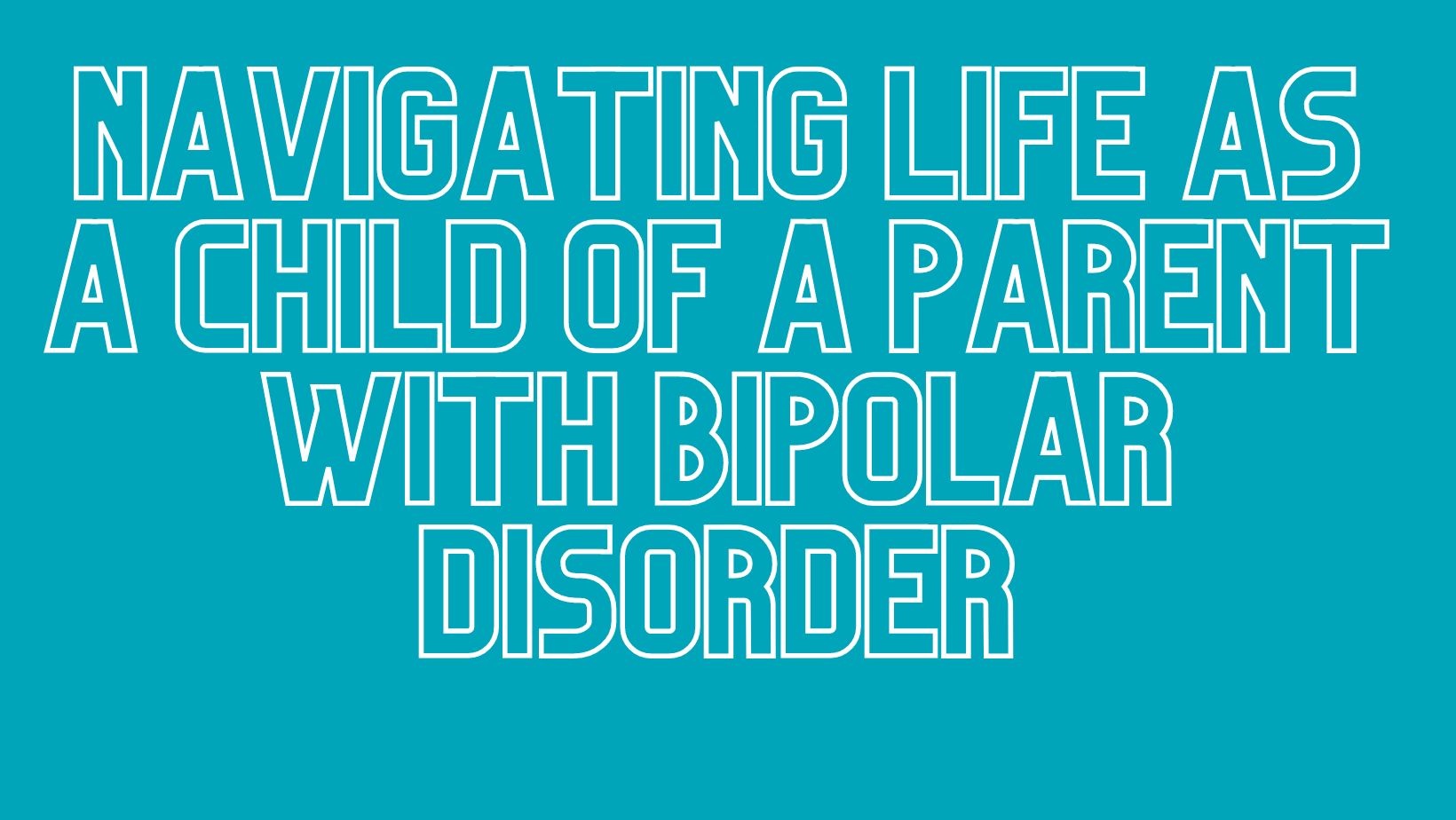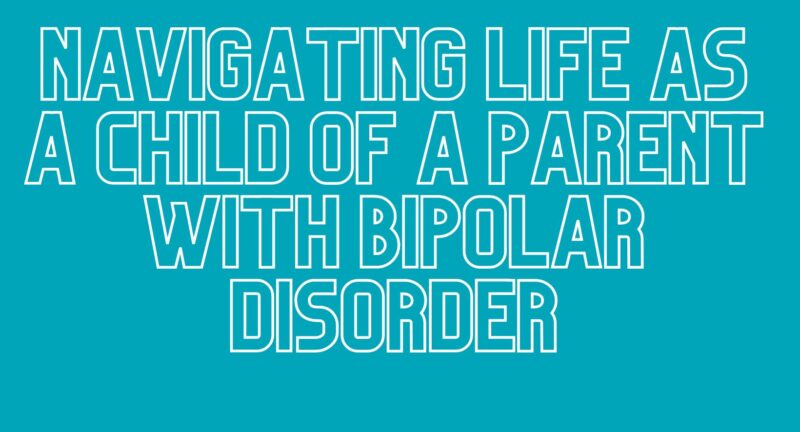
Thriving Under One Roof: Navigating Life as the Child of Someone with Bipolar Disorder
Growing up with a parent who has bipolar disorder can be challenging and complex, but it doesn’t mean that you can’t lead a fulfilling life. It’s essential to recognize that mental health impacts the entire family, and finding ways to create a thriving environment is crucial for everyone involved.
In this blog post, we’ll explore various strategies and resources that can help you, as the child of someone with bipolar disorder, build a supportive and flourishing life under one roof.
Understanding Bipolar Disorder
Education is the first step towards building a supportive environment. Take the time to learn about bipolar disorder, its symptoms, and treatment options. Understanding the condition can help you empathize with your parent’s experiences, reduce stigma, and foster open communication.
Understanding bipolar disorder can be overwhelming, but let’s break it down into the top things you need to know:
- Subtypes of Bipolar Disorder: Bipolar disorder is categorized into three main subtypes. Bipolar I disorder involves episodes of extreme high energy and agitation known as mania. Bipolar II disorder involves episodes of mild to moderate mania alternating with episodes of moderate to extreme depression. Cyclothymia is characterized by simultaneous depression and mania episodes. Some individuals may experience hypomania, which is a less intense form of mania.
- Duration of Episodes: Manic episodes can last for several days, during which individuals may display elevated mood, increased energy, impulsivity, and other symptoms associated with mania. It’s important to note that some types of bipolar disorder also include periods of depression, which can vary in duration.
- Treatment Options: Many individuals with bipolar disorder can effectively manage the condition over the long term with a combination of medication and talk therapy. Medications, such as mood stabilizers, can help regulate mood and prevent extreme fluctuations. Talk therapy, such as cognitive-behavioral therapy (CBT), can provide valuable support and help individuals develop coping strategies.
Remember, it’s essential to consult with a healthcare professional for an accurate diagnosis and personalized treatment plan. They can provide you with detailed information specific to your (or your parent’s) situation and guide you through the process of managing bipolar disorder effectively.
Take one step at a time, seek support from mental health professionals and support networks, and remember that with proper management, individuals with bipolar disorder can lead fulfilling lives.
Open Communication
Maintaining open and honest communication within the family is key. Encourage your parent to share their feelings and experiences, and express your own thoughts and concerns. Establishing a safe space for conversations can promote understanding, reduce tension, and create a supportive atmosphere for everyone.
If talking out loud isn’t always easy, consider journaling your thoughts.
Here at NextStep2MentalHealth, we offer a variety of therapy, including both individual and family.
Seek Support
Remember that you don’t have to navigate this journey alone. Seek support from trusted family members, friends, or support groups. The Depression and Bipolar Support Alliance provide resources both individuals who have a family member with bipolar disorder. Connecting with others who have similar experiences can provide a sense of belonging and validation, while also offering practical advice and coping strategies.
Establish Boundaries
Living with someone who has bipolar disorder can sometimes mean dealing with unpredictable moods and behaviors. It’s important to establish healthy boundaries to protect your own well-being. Communicate your needs clearly and respectfully, and work together with your parent to establish boundaries that promote a harmonious living environment.
Here’s a helpful guide on establishing and keeping healthy boundaries.
Self-Care
As a child of someone with bipolar disorder, it’s crucial to prioritize your own self-care. Take care of your physical and emotional well-being by engaging in activities you enjoy, practicing relaxation techniques, maintaining a healthy lifestyle, getting enough sleep, and seeking professional support if needed.
Remember, taking care of yourself is not selfish; it allows you to better support your parent and maintain your own mental well-being.
Educate Others
One way to break down the stigma surrounding mental health is to educate others about bipolar disorder. Share your experiences with trusted friends, teachers, or school counselors to raise awareness and foster understanding. By promoting empathy and acceptance, you contribute to creating a more inclusive and supportive community.
Accessing Resources
Take advantage of available resources and support networks. These resources can include support groups, therapy options, educational materials, and helplines. Reach out to these organizations for guidance and assistance in finding the right support for you.
Living with a parent who has bipolar disorder can be challenging, but it is possible to create an environment where everyone can thrive. By fostering open communication, seeking support, establishing boundaries, prioritizing self-care, educating others, and accessing available resources, you can build a fulfilling life under one roof. Remember that your well-being matters, and by taking care of yourself, you are better equipped to support your parent and create a positive family dynamic. Together, we can break the stigma and build a community where everyone feels understood and supported on their mental health journey.
We’re Here for You!
Are you seeking support and resources as a child of someone with bipolar disorder? NextStep2MentalHealth is here to help you thrive under one roof. Remember, you are not alone in this journey. Take the next step towards a flourishing life by reaching out to NextStep2MentalHealth. Together, we can navigate this path with empathy, understanding, and support. Click here to get started.
Related Posts
What is Bipolar Disorder?
One of the most dangerous aspects is that multiple untreated manic or hypomanic...
Thriving Under One Roof: Navigating Life as the Child of Someone with Bipolar Disorder
Growing up with a parent who has bipolar disorder can be...


